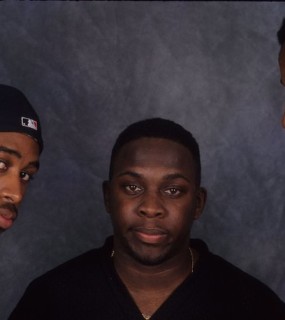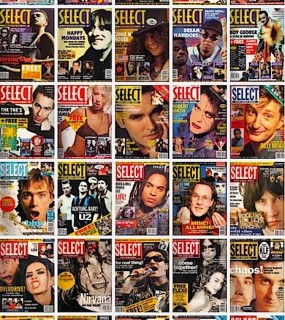AURORA – Running With The Wolves
“The song is about having the animal instinct inside you come to life. Running with them, joining them – the instinct taking over, giving you freedom and making you forget about your human self and all things we humans keep around us in the modern society.
I think humans need to let go a bit more, shake their bodies more often, like the animals do.. It’s a beautiful thing really.
Sometimes when you look at the world, and you see what we’ve done to it, the way many of us hurt the world we live in, innocent animals, even our own kind! And that kind of makes you want to follow the wolves instead. At least for one night.”
Aurora Aksnes is a 18 year old girl from Bergen, Norway. She strives to write music that can inspire people, through idiosyncratic tales of struggle, love, and all that lies in between.
Read the rest of this article at Soundcloud
Day Wave – Stuck
Over a wash of slightly twangy guitars and deep, buzzing bass lines, Jackson Phillips lays down a melancholy narration that gives shape to “Stuck,” the latest single from Day Wave’s upcoming Hard To Read EP. Mixing some classic indie rock and shoegaze motifs, the California-based solo artist creates a sound that solidifies these themes by creating a distinct sense of distance and nostalgia. Still, Phillips manages to keep the track from becoming overly weighty through upbeat drums and ethereal harmonies that add a silver lining to the otherwise cloudy tune.
Read the rest of this article at Stereogum
Frankie Cosmos – On The Lips
When you see David Blaine stick an ice pick through his own hand without leaving a mark, the sight can unlock a door in your brain: Is this real? It looks real. If this is real, what is reality? It’s a freeing feeling, as if the world has been made anew right in front of your eyes; by witnessing something senseless, other things begin to make sense. Admittedly, talking about this newfound awareness can make you sound like a rube or an acid casualty, but its power should not be totally denied. Frankie Cosmos’ Greta Kline knows what it’s like to have your mind rearranged by a magic trick. She wrote a song about it.
“On the Lips” finds Kline believing in something as illogical as a David Blaine stunt: love. “Why would I kiss ya?/ If I could kiss ya?” she wonders, questioning the existential purpose of touching lips. As usual, the songwriter instinctually deflates her big ideas, sounding both over it and into it all at once. A grand lyric like “sometimes I cry cause I know I’ll never have all the answers” is not played to dramatic effect with strings and swells. It is stated plainly, accompanied by simple strums and the faintest hint of heavenly synth, and followed by a line about the modest woe of New York City subway transfers. For Kline, the prospect of an underground kiss and the mysteries of the universe belong in the same breath. As they should.
Read the rest of this article at Pitchfork
The Range – Florida
The electronic musician James Hinton, who peforms music as the Range, has worn the same hat and buttoned-up shirt combo each time I’ve seen him perform. There’s something comfortably consistent about it, and that can be said of his music, too. For instance, his new album, Potential, feels very much like a refined continuation of 2013’s Nonfiction. In some ways, it comes off like its second part, more than an entirely new entity.
This is praise. Nonfiction found a way to make moving, emotionally resonant electronic music from seemingly not much more than YouTube samples and a great sense of dynamics and melody. Like Nonfiction, Potential features YouTube clips of anonymous people who bolster and humanize Hinton’s compositions. Hinton explains: “I found each person by using a small set of search terms on YouTube… I endeavored to tie the songs of Potential together by telling my own story alongside the stories of the people I sampled.”
Read the rest of this article at Pitchfork
The Arcs – Lake Superior
The Arcs, the side-project of The Black Keys‘ Dan Auerbach, have released a new song inspired by hit Netflix series Making A Murderer.
The recently-aired documentary series was filmed over the past decade and focuses on the trial and conviction of two men in Manitowoc, Wisconsin: Steven Avery and Brendan Dassey. Both men are currently serving life sentences, having been convicted in 2007, with Making A Murderer paying particular attention to perceived injustices in the case.
Now The Arcs have shared a new track titled ‘Lake Superior’, inspired by the story of Avery and Dassey. Proceeds from the song will go to the Innocence Project, a nonprofit organisation that helps those seen to be wrongly convicted.
The band say in a statement along with the release: “It’s like Billy Childish says, ‘We live in troubled times’. Last week, we got a sneak peek at what goes on behind the curtains of our criminal justice system. A few sleepless nights later we gathered in the studio and wrote this song.”
Read the rest of this article at NME
News
The Legacy of A Tribe Called Quest

I GREW up in the suburbs of Boston, where I was the top-ranked singles player on my prep school’s tennis team and obsessed with rap music by Run-DMC, LL Cool J and KRS-One. But I felt like I was eavesdropping on someone else’s conversation when I listened to them. Those guys were streetwise kings of the hood from mighty New York, urban jungle warriors so ultra masculine they were like comic book superheroes.
At that point in the mid-1980s, hip-hop promoted a narrow vision of blackness marked by bravado, machismo, egocentrism and, for most, a bodacious New Yorkness. I looked at hip-hop and wondered where I fit in. Until A Tribe Called Quest arrived on the scene.
The legendary hip-hop group lost a core member this week when the rapper Phife Dawg (born Malik Taylor) passed away from complications of diabetes. He was 45. The remaining members include the group’s leader, rapper Q-Tip, their DJ/producer, Ali Shaheed Muhammad and Jarobi White, an occasional bandmate.
The rappers from Tribe were far from urban jungle warriors: They loved to read and wanted to smoke weed, not sell it. They wore their intellectualism lightly, but proudly, and they made hip-hop for people who were as interested in ideas as in rhymes. Questlove, the drummer for the Roots, told me that when he was a teenager, Tribe was critical to his seeing himself as someone who could be in hip-hop.
Read the rest of the story at The New York Times
Can Cuba Become the Next Great Rock Destination?

Diplo was expecting around 40,000 Cubans to show up when he and his dance crew, Major Lazer, played Havana’s José Martí Anti-Imperialist Platform on a recent Sunday afternoon. Instead, they got 10 times that many. Almost half a million fans, most of them teenagers, came out – a sea of bodies that stretched infinitely in front of the recently reopened U.S. Embassy. “It was the biggest show we ever played,” says Diplo. “They were absolutely crazy. Energy, so much energy. It was really emotional.
Major Lazer were only the second U.S. act to play a major concert in the communist country in more than 50 years (after Audioslave in 2005), and the first since President Obama called for restoring diplomatic relations with Cuba in 2014. Right now, Cubans are gearing up for another historic show, on March 25th, when the Rolling Stones will become the first British band to play a large outdoor gig in Havana.
Some Cuban promoters are hoping the shows are just the tip of the iceberg for the island’s concert industry. “I think the Stones show will be the first of many major concerts in Cuba,” says Andres Levin, a musician and film and events producer in Cuba. “There are going to be a lot of firsts in the next couple of years.”
Read the rest of the story at RollingStone
A Breif istory Of 90s Britpop As Told Through The Covers of ‘Select’ Magazine

Selective memory can be a marvellous thing. It ensures we are never wrong, always right and (best of all) that we have always had such impeccable taste in music.
In Britain there were a lot of drugs about in the nineties—a lot of bad drugs—which might explain why so many of us—who lived through that heady decade—only recall the really good stuff rather than all that crap we apparently really enjoyed—Mr Blobby? Babylon Zoo? Rednex? Will Smith?—well, somebody bought this shit, how else did it all get to #1?
Personally, I have no recollection (officer) as to how all these records charted, but I can certainly give you a brief illustrated history of what we were actually listening to and what we all supposedly liked.
Exhibit #1: Select magazine
Select was arguably the magazine of the 1990s—the one that best represented (or at least covered) what happened during that decade—well, if you lived in the UK that is. Select had attitude, swagger and wit and was very, very opinionated. It didn’t tug its forelock or swoon before too many stars—though it certainly had its favorites.
Select kicked off in July 1990 with his purple highness Prince on the cover. It was a statement of the kind of magazine they were going to be—cool, sophisticated, sexy, sharp. Prince was good—everybody loves Prince. It didn’t last long. Over the next few months, the magazine struggled to find a musical movement it could wholeheartedly endorse. In its search for the next big thing—even The Beatles (rather surprisingly) featured on its cover.
Read the rest of the story at Dangerous Minds


